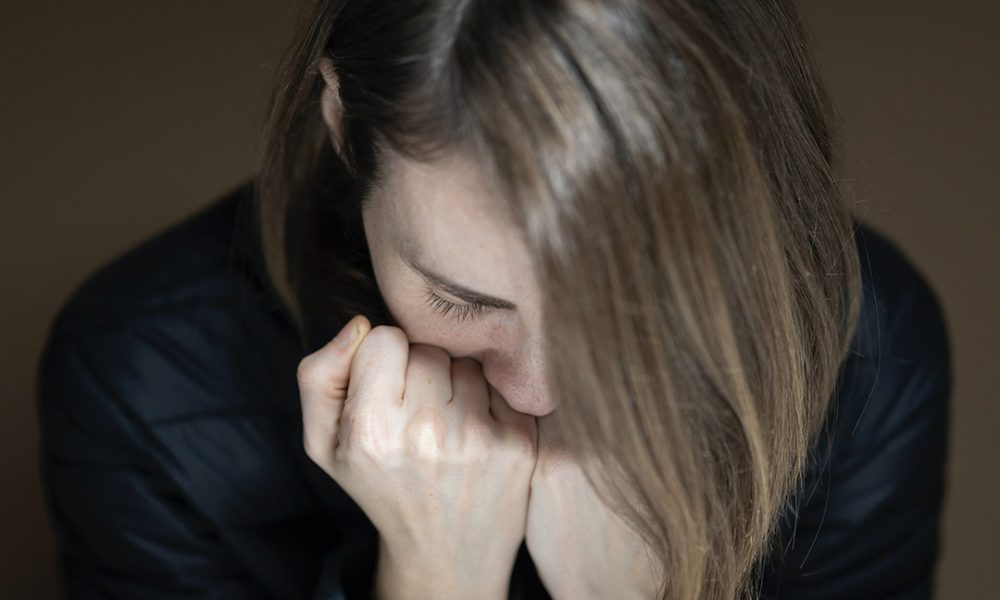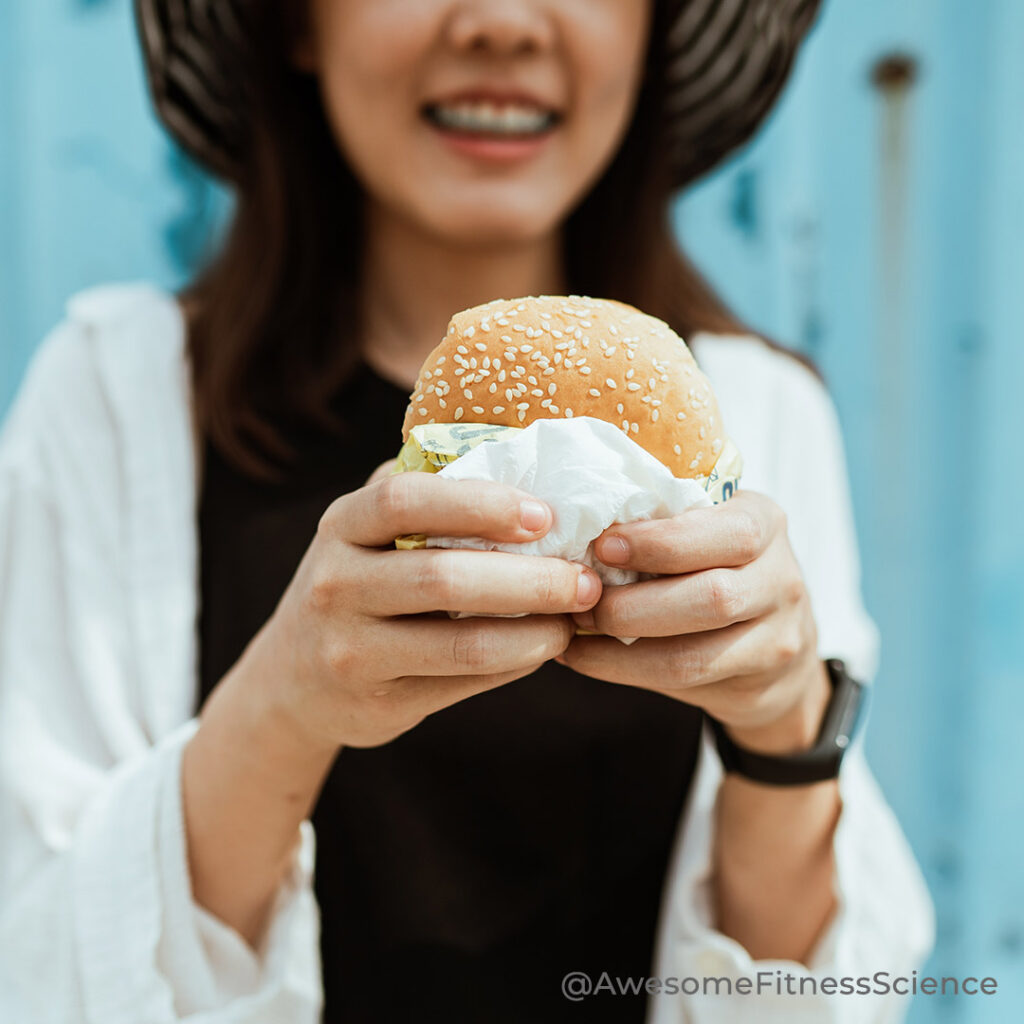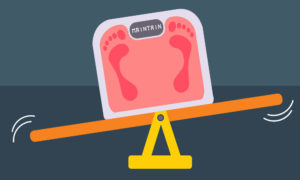
How to Scientifically Sequence Your Exercises
Think of your most stubborn muscle group that’s so painfully small despite how hard you train it. Perhaps, it’s your narrow back, your chopstick calves, or your flat butt.

I like equal opportunities as much the next person, but we live in a world where the playing field is rarely equal. So, let’s answer the politically incorrect question of is fat loss harder for women?
This is extremely relevant because the weight loss industry is notorious for marketing to women. Plus, if you simply look at your life, most dieters you know are usually women. People who struggle with emotional eating, stress eating, and yoyo dieting are often women.
Some guys will say fat loss is equal. They claim metabolisms are equal between gender and women struggle because they simply drink too much wine.
But c’mon, who doesn’t like drinking too much wine occasionally? On a more serious note though, let’s break all of this down comprehensively.
If you think of fat loss as a game, a person needs to be in a consistent caloric deficit to lose weight/fat and thus, win the game. All humans regardless of gender are bound to these rules of thermodynamics. And despite how much your aunt Karen whines about her metabolism shutting down, energy expenditure is equal between sexes relative to their bodyweight and body composition.
So initially, the game is equal. Everyone plays by the same rules of being forced into a caloric deficit. Nobody can cheat code around this.
However, the issue isn’t in the game, it’s in the cards dealt.

We know that muscle burns more calories than fat. And while women burn the same amount of calories for the same muscle mass, they start life off with less muscle mass.
Because men have testosterone producing balls, they start life off with more muscle especially after puberty. Men also have generally higher body weights allowing them to burn more calories.
Of course, women can build muscle to catch up, but building muscle is a slow process especially when social norms make strength training more of a masculine thing. It’s easy to say, “Well women should just get over it and lift,” but that’s like telling men to just get good at ballet and sharing feelings. It’s not that simple. There are cultural, social, and even biological hardwirings to work through.
These are what I would call phantom obstacles. These are the difficulties under the surface we don’t always consider or realize.
Grab my free checklist on how to defeat your worst food cravings
Certain vitamins and minerals are required in higher doses for men and some for women. If we simply assume an equal average across all nutrients, this inherently puts women at a disadvantage for reaching optimal micronutrient intake.
Because if you can put 2 and 2 together, women are born into lower energy expenditure due to being smaller and having less muscle mass which forces lower energy intakes, yet still requires the same dosage of vitamins/minerals on average. This makes it harder to meet these requirements with less total food.
And while micronutrients don’t contain calories and doesn’t impact fat loss directly, they all impact fat loss indirectly via health, energy expenditure, performance, satiety, mood, sleep, and much more.
If a man can reach the same micronutrient levels with calories leftover, his diet is practically more flexible as well. It’s easier for him to add some pizza or an extra cookie while being nutritionally sound. On the other hand, women have fewer calories to work with, so nutritionally void foods will be more costly for her caloric budget.

Even though fat loss requires an energy deficit for both men and women, women have a less predictable path in achieving and detecting an energy deficit.
Men don’t have a menstrual cycle or have to go through the various stages of menopause. These lifestyle changes can impact female hunger, mood, cravings, energy, and energy expenditure. It also makes scale fluctuations more volatile which can make it difficult to detect weight loss without professional help.
I’m not saying men don’t also experience similar challenges in their own right, but it’s generally not as bad. I didn’t even mention the physical and practical challenges of fat loss with pregnancy because that alone is a massive consideration.
Let’s be frank here. Women are typically more emotional. If that triggers you, go observe the world for 5 minutes and this should be obvious.
Some of the deeper nutritional obstacles of stress eating, emotional eating, or hormonal cravings usually impact women more. The emotional regulation required for women is often greater than men (5). This is why in some cases, a woman can intend to eat a salad one moment, but a few feelings and circumstances later end up inhaling a bottle of wine and boxes of chocolate.
Men can certainly go through many of these scenarios as well. I don’t doubt that, but it’s generally not to the same degree. If you’re extra triggered at this point, here are some references for anybody who demands scientific sources for something rather obvious (1-4).
In fact, studies have found a female brain expends more cognitive resources aka willpower when regulating emotions (5). To be clear, these are not excuses to play victim, but rather circumstances to be aware of and manage.
The game of fat loss is the same for everyone, but women are dealt a worse hand on average.
Women have to eat fewer total calories while still reaching the same micronutrient requirements on average. They also have to deal with menstrual cycle unpredictability and more volatile scale fluctuations.
Pregnancy throws quite a few wrenches in a women’s fat loss efforts.
And to top it off, an emotional rollercoaster requires more effort to manage in order to stay on the straight and narrow path of weight loss.
So yes, fat loss is harder for women.
Keep in mind, harder does not mean impossible. While I acknowledge women have it more difficult, every human is responsible for their own habits and bodies.
This doesn’t absolve personal ownership over what you can control for your goals. Despite difficulty, most women still want to be a leaner in order to feel confident and live the life they desire.
So while it’s vital to understand the disadvantages, there’s no point in wallowing over them, at least not at the expense of taking action.
I mean, is it really that helpful to whine about how your husband can eat a whole pizza and be lean? Just do you boo. Your hand isn’t as good as his, but it’s still highly playable.
Weekly, Monthly, and Yearly Habit Trackers to keep you accountable to any nutrition or exercise habit.

Think of your most stubborn muscle group that’s so painfully small despite how hard you train it. Perhaps, it’s your narrow back, your chopstick calves, or your flat butt.

So you’re done with dieting. Now it’s time to transition to maintenance because losing weight is only half the battle. Maintaining your new bodyweight is the other (arguably more important) half.

There are many set extending techniques or intensifying techniques. Some people call them advanced training techniques, although I’m not a fan of that name.